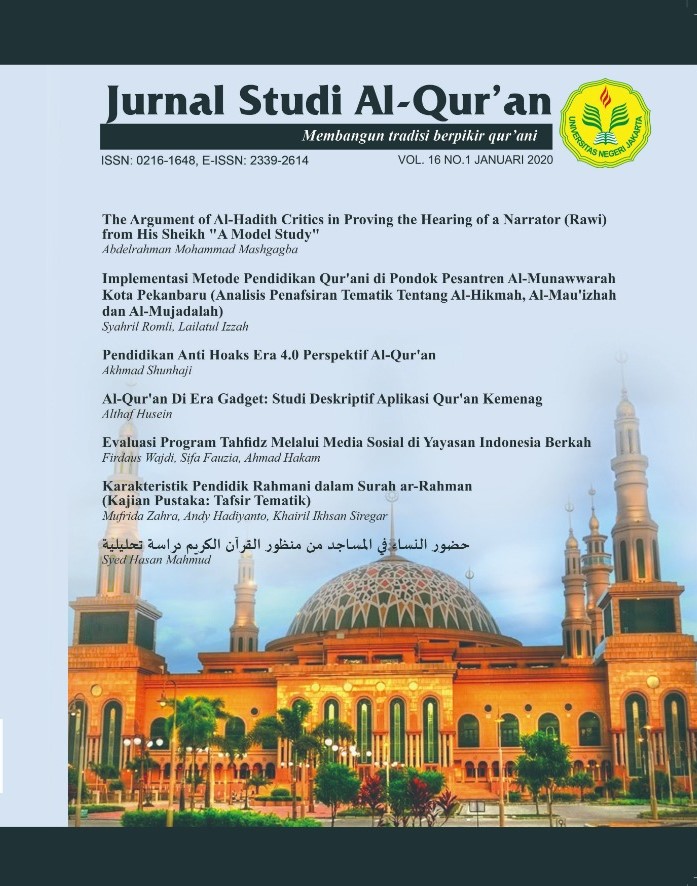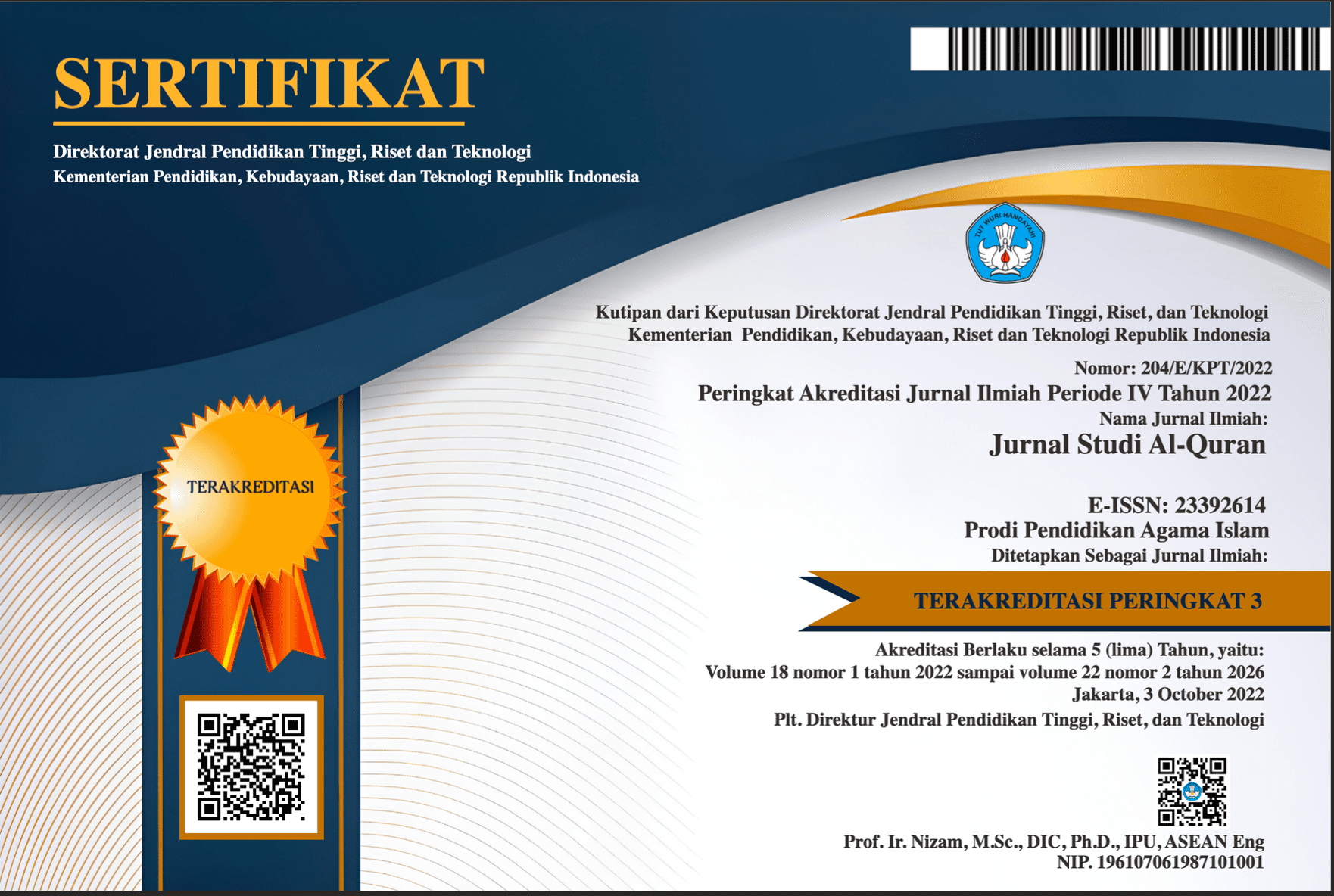Evaluasi Program Tahfidz Melalui Media Sosial di Yayasan Indonesia Berkah
DOI:
https://doi.org/10.21009/JSQ.016.1.05Keywords:
Online Tahfidz Program, Evaluation of EducationAbstract
The Tahfidz Online program is the flagship program of the Indonesia Berkah Foundation. This study aims to describe and evaluate the implementation of the Indonesia Berkah Foundation's Tahfidz Online program. This research is qualitative research with data collection techniques using observation, interviews and document analysis. The CIPP (context, input, process, product) evaluation model developed by Daniel Leroy Stufflebeam et al. was used as an evaluation reference. This study finds out that: In terms of the input component, it shows that musyrifah, curriculum, and infrastructure have met the criteria. However, there are notes on the input of students not meeting the criteria of intention because God also does not understand the knowledge of recitation and Arabic. In terms of the media process components and materials, they do not meet the criteria of interest and are arranged in a sequence that makes it easy for students, while the method and time have met the criteria.
Keywords: Online Tahfidz Program, Evaluation of Education
References
Ihsan Mahmudi, CIPP: Suatu Model Evaluasi Pendidikan, at Ta’dib Journal of Pesantren Education, Volume 6, No. 1, Juni 2011
Pengawas Sekolah Pendidikan Menengah, Pendekatan, Jenis dan Metode Penelitian Pendidikan, (Ditjen PMPTK, 2008)
Suharsimi Arikunto dan Cepi Safruddin Abdul Jabar, Evaluasi Program Pendidikan, (Jakarta: Bumi Aksara, 2010)
Suharsimi Arikunto, Prosedur Penelitian: Suatu Pendekatan Praktik (Jakarta: Rineka Cipta, 2010)
Wirawan, Evaluasi: Teori,Model,Standar,Aplikasi dan Profesi, (Jakarta: Rajawali Press, 2012)
Republika, Yayasan Indonesia Berkah Selenggarakan Program Tahfidz Online, https://republika.co.id/berita/koran/news-update/ob25s8/yayasan-indonesia-berkah-selenggarakan-program-tahfidz-online, diakses pada 27 Maret 2019
Republika, Yayasan Indonesia Berkah Selenggarakan Program Tahfidz Online, https://republika.co.id/berita/koran/news-update/ob25s8/yayasan-indonesia-berkah-selenggarakan-program-tahfidz-online, diakses pada 27 Maret 2019
Republika, Yayasan Indonesia Berkah Selenggarakan Program Tahfidz Online, https://republika.co.id/berita/koran/news-update/ob25s8/yayasan-indonesia-berkah-selenggarakan-program-tahfidz-online, diakses pada 27 Maret 2019
Ristu Hanafi, Jumlah Penghafal al Qur’an Meningkat di Indonesia, https://news.detik.com/berita-jawa-tengah/d-3950917/jumlah-penghafal-alquran-meningkat-di-indonesia, diakses pada 28 Maret 2019
Rumah Tahfidz Center, Profil Rumah Tahfidz, http://rumahtahfidz.or.id/profil/rumah/tahfidz/, diakses pada 28 Maret 2019
Tahfidz Online, Logo program Tahfidz Online, tahfidz-online.quranmemo.com, diakses pada 01 Juli 2019
Tahfidz online, Wujudkan Mimpi Para Penghafal al Qur’an Yuk, https://www.kitabisa.com/tahfidzonline, diakses pada 29 Maret 2019
Downloads
Published
How to Cite
Issue
Section
License
Authors who publish with this Journal agree to the following terms:
- Author retain copyright and grant the journal right of first publication with the work simultaneously licensed under a creative commons attribution licensethat allow others to share the work within an acknowledgement of the work’s authorship and initial publication of this journal.
- Authors are able to enter into separate, additional contractual arrangementfor the non-exclusive distribution of the journal’s published version of the work (e.g. acknowledgement of its initial publication in this journal).
- Authors are permitted and encouraged to post their work online(e.g. in institutional repositories or on their websites) prior to and during the submission process, as it can lead to productive exchanges, as well as earlier and greater citation of published works.
Users/public use of this website will be licensed to CC BY










